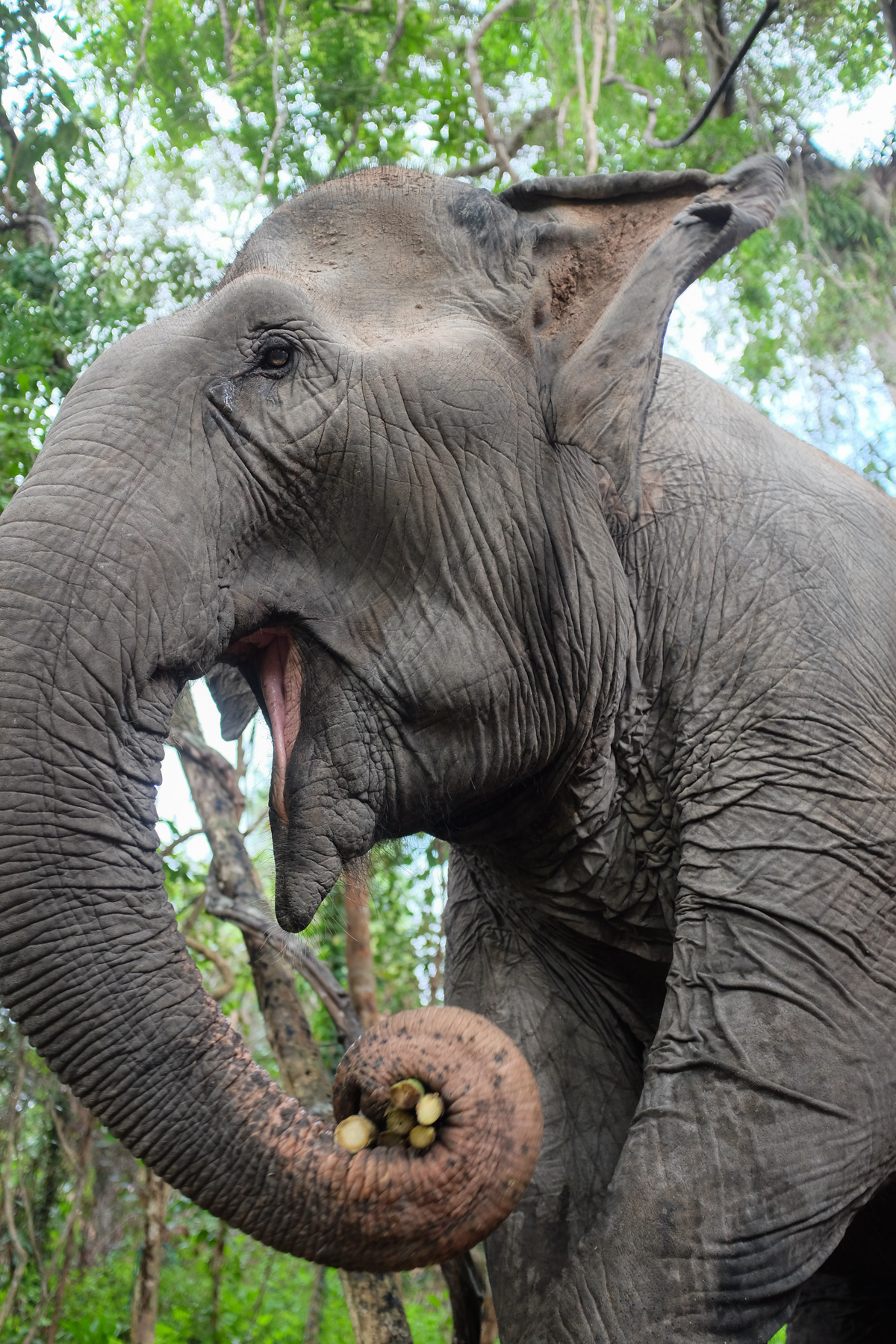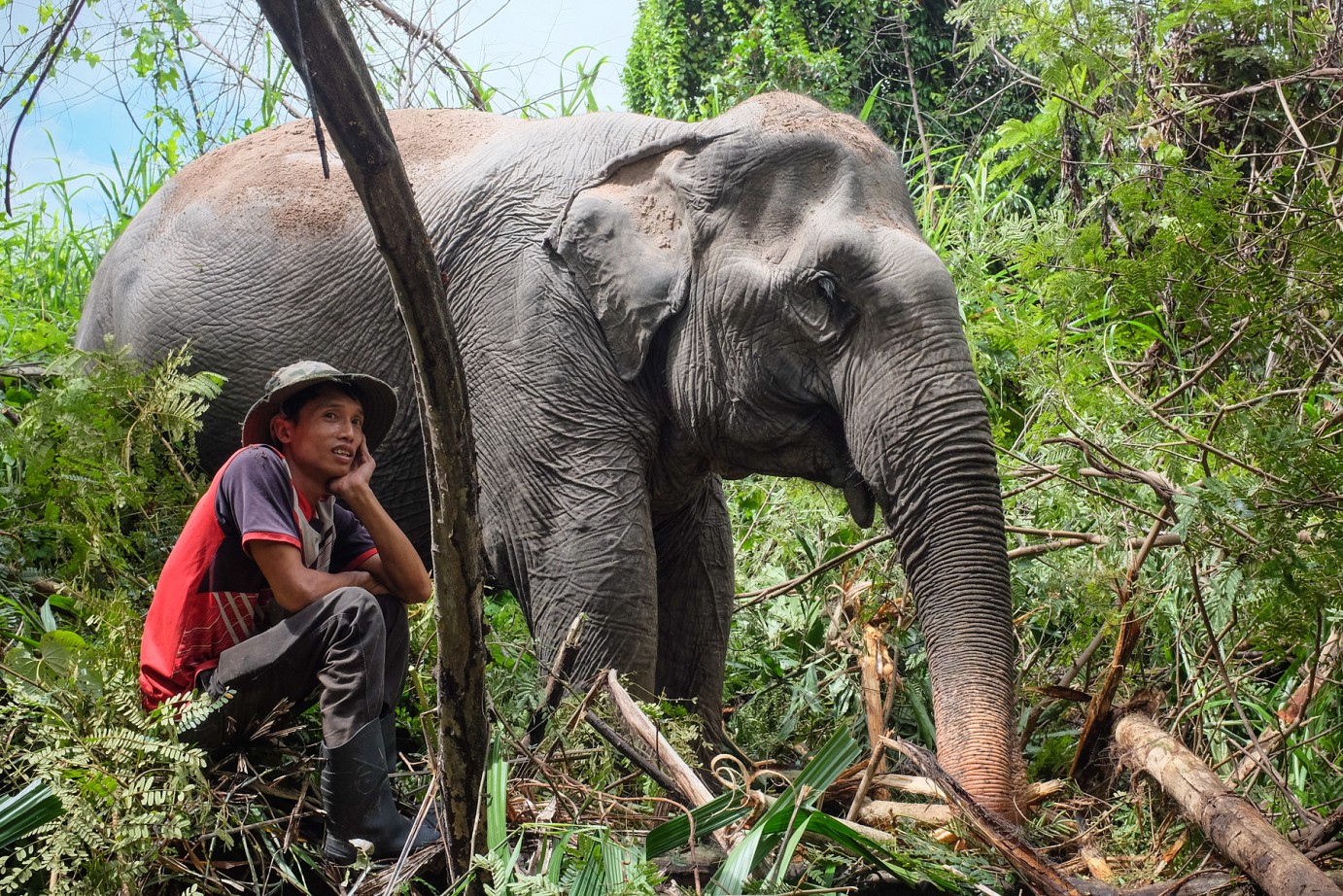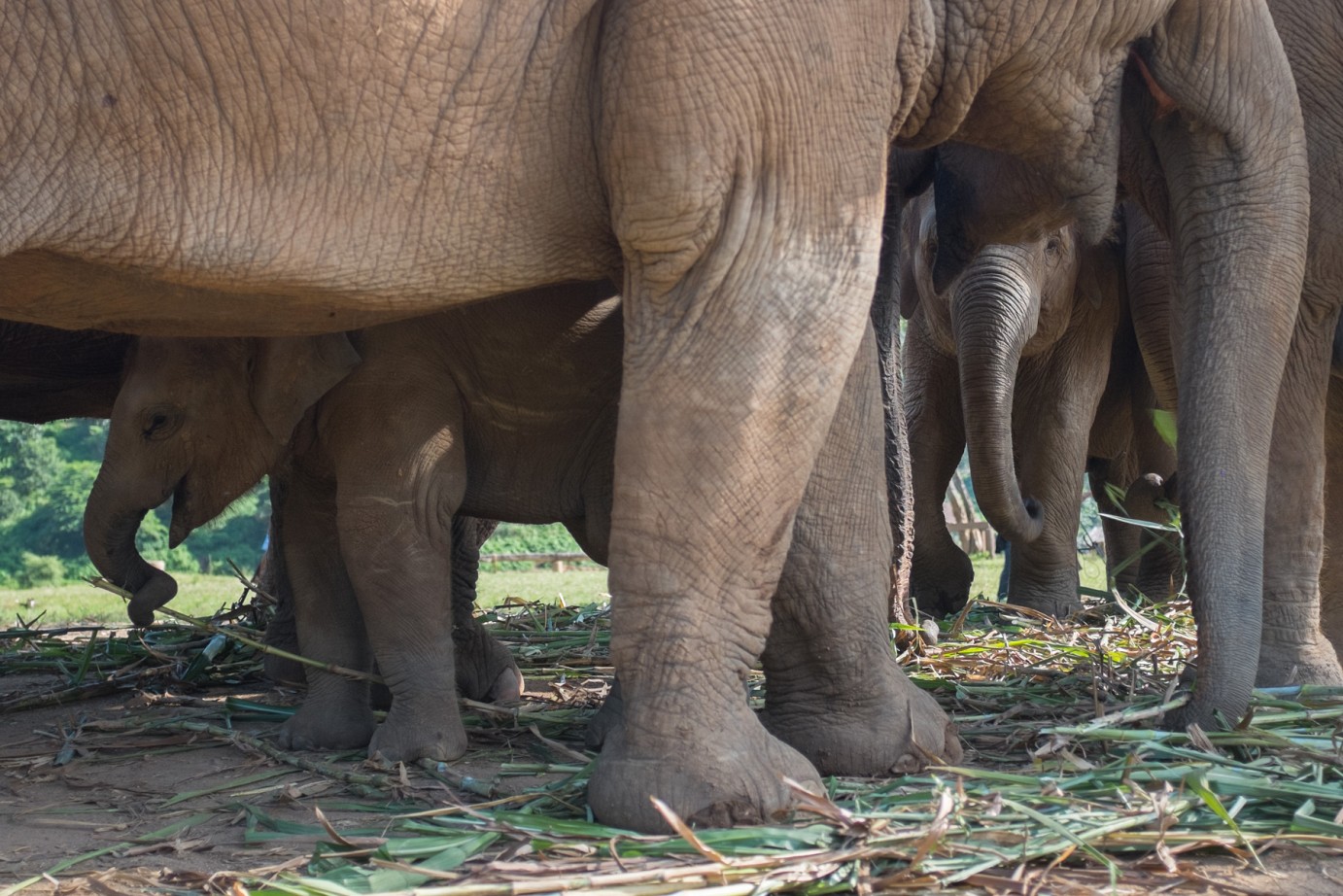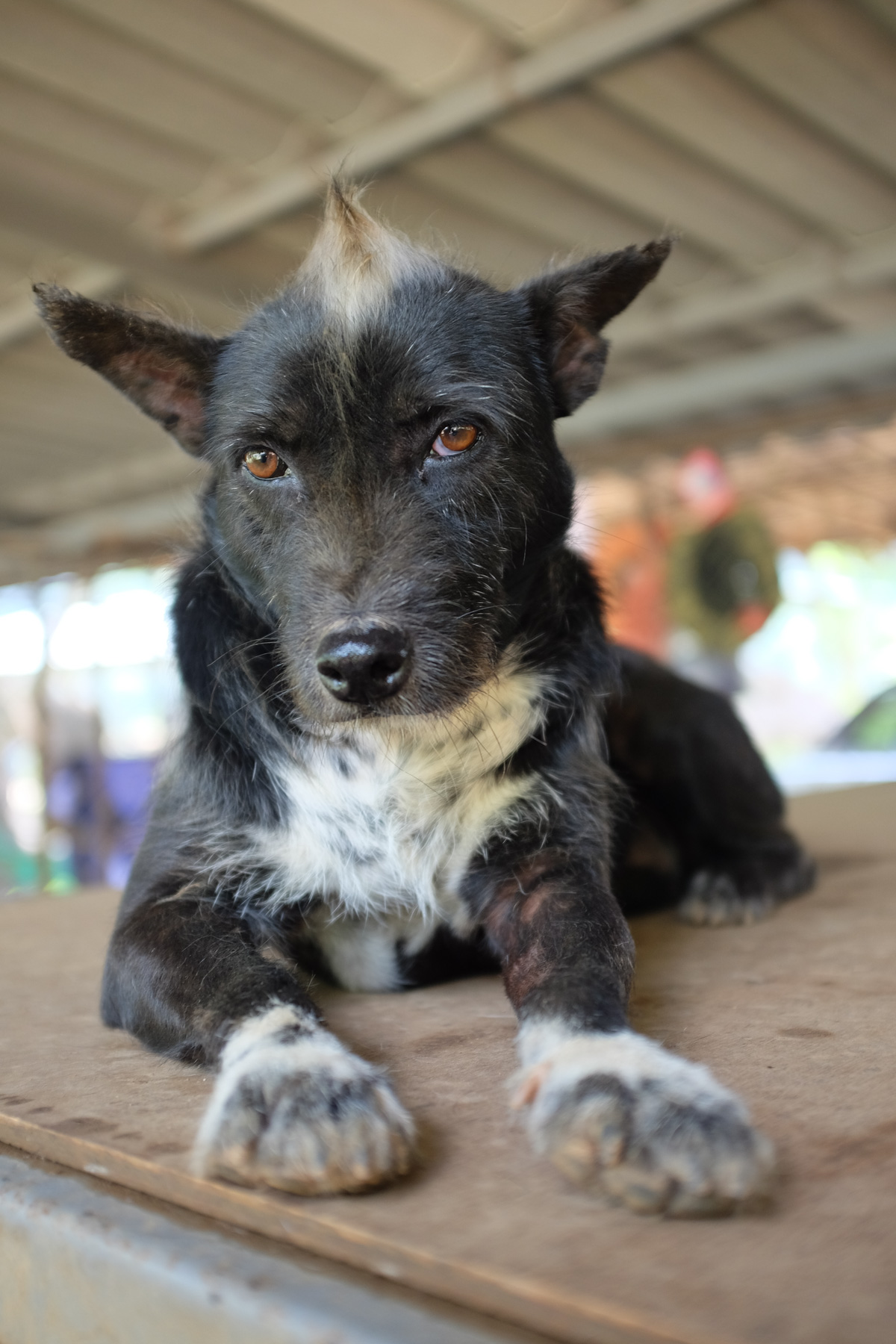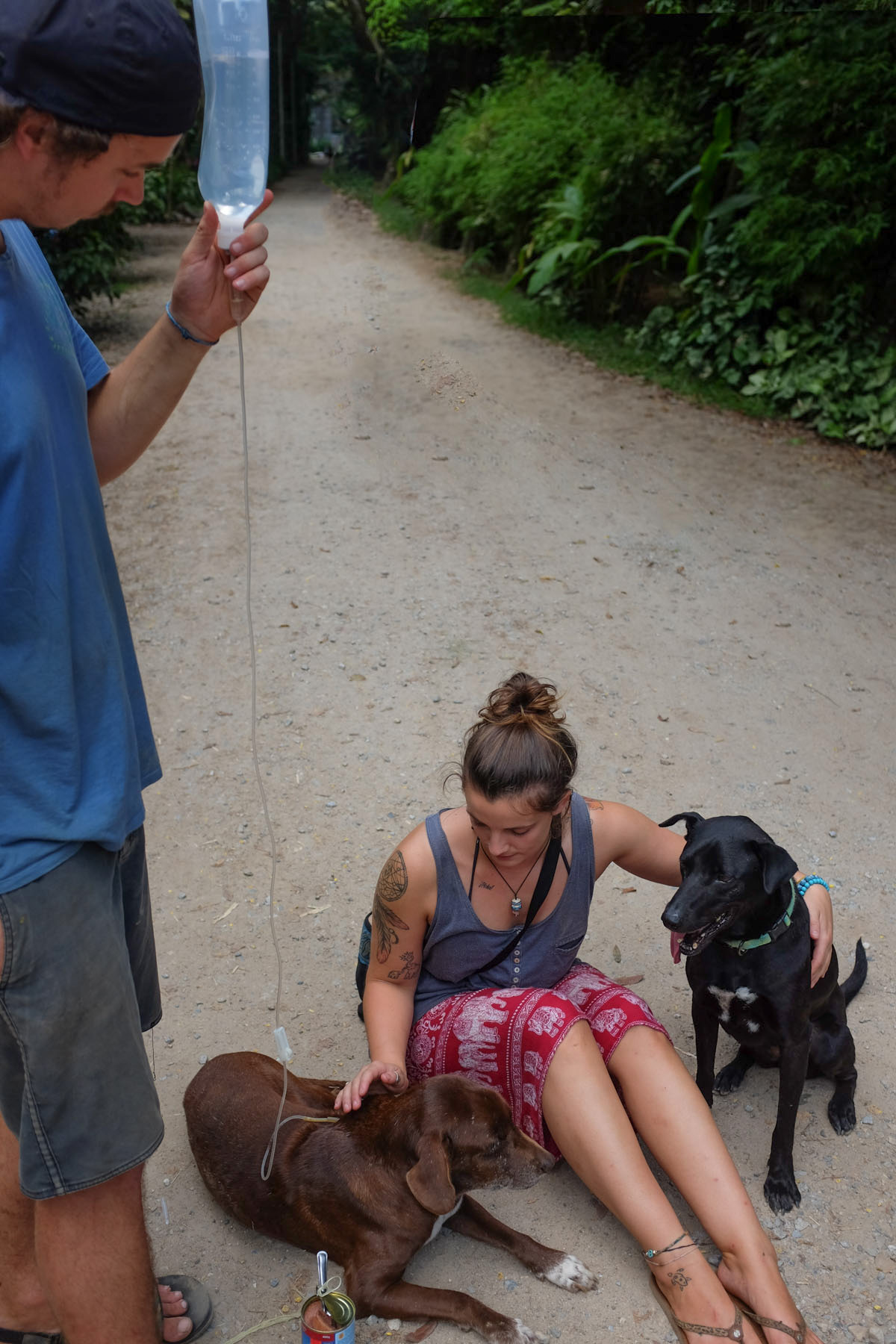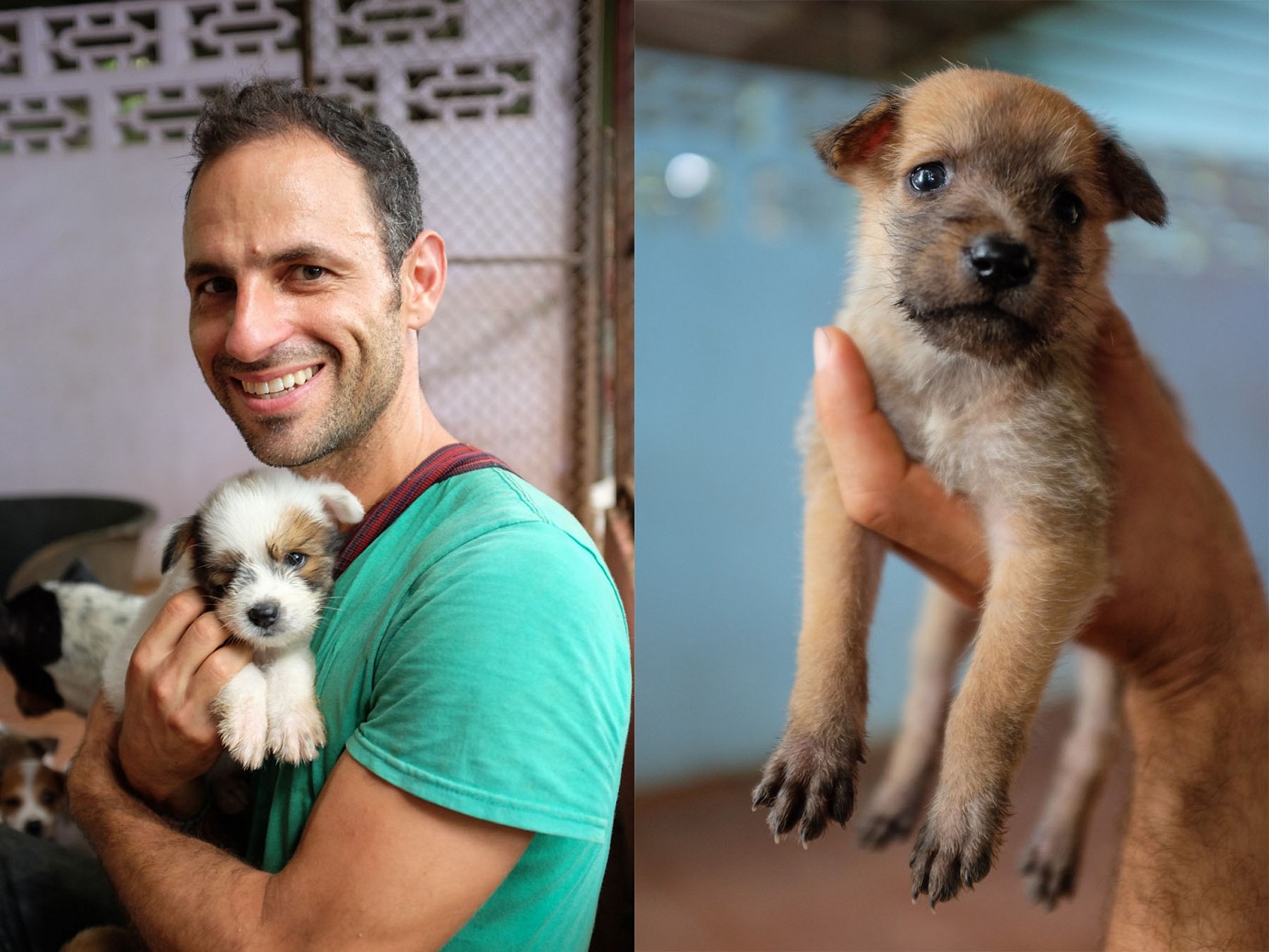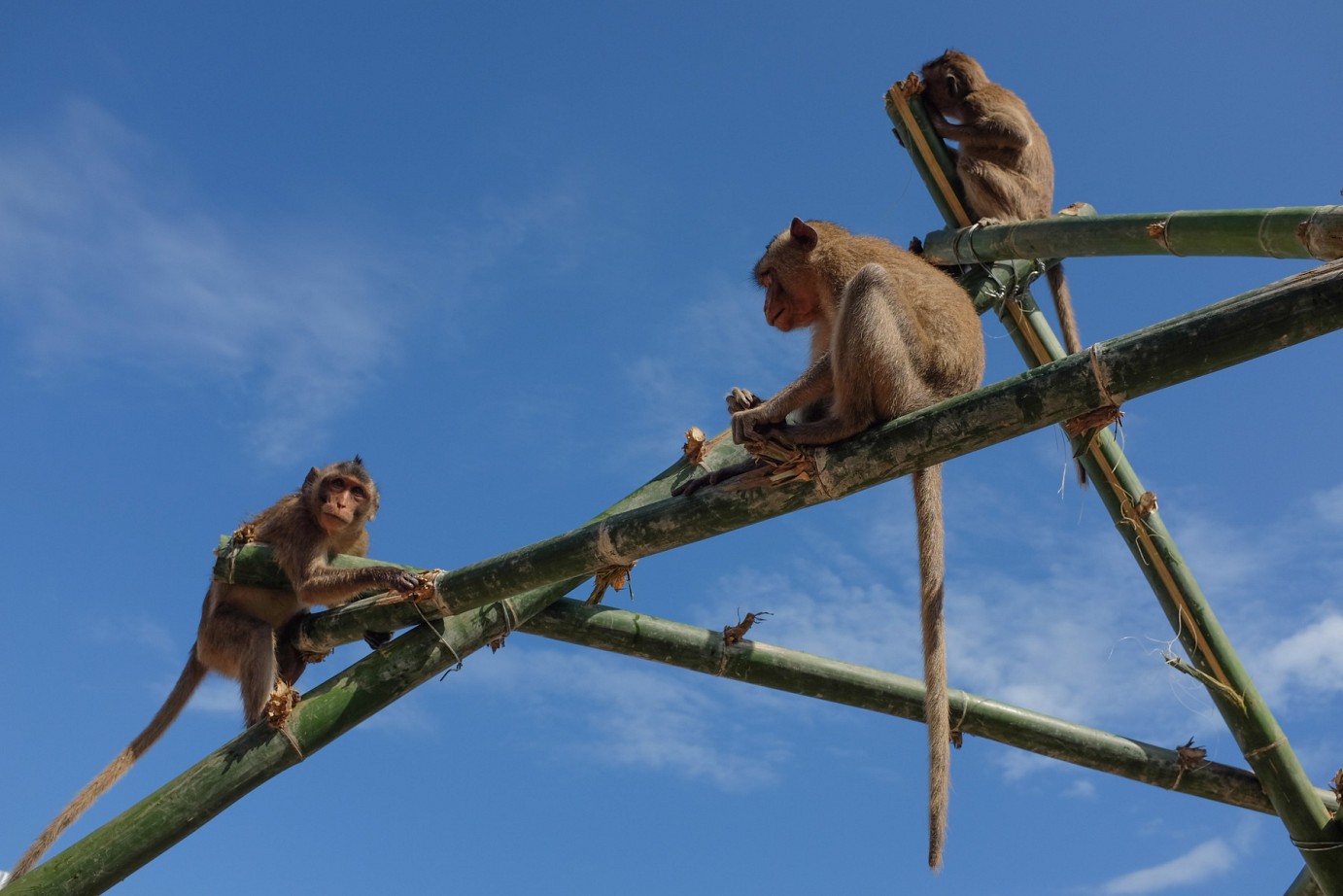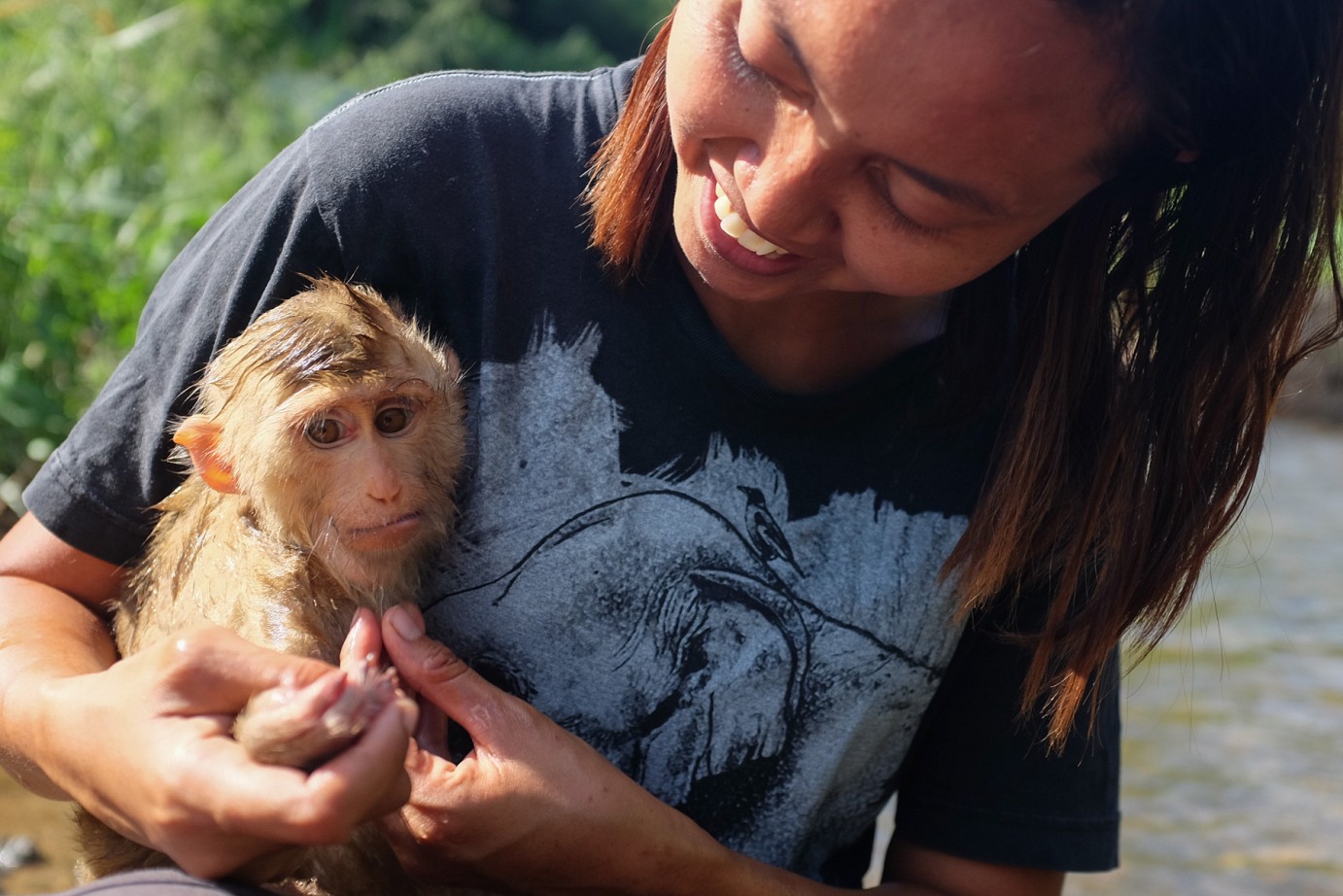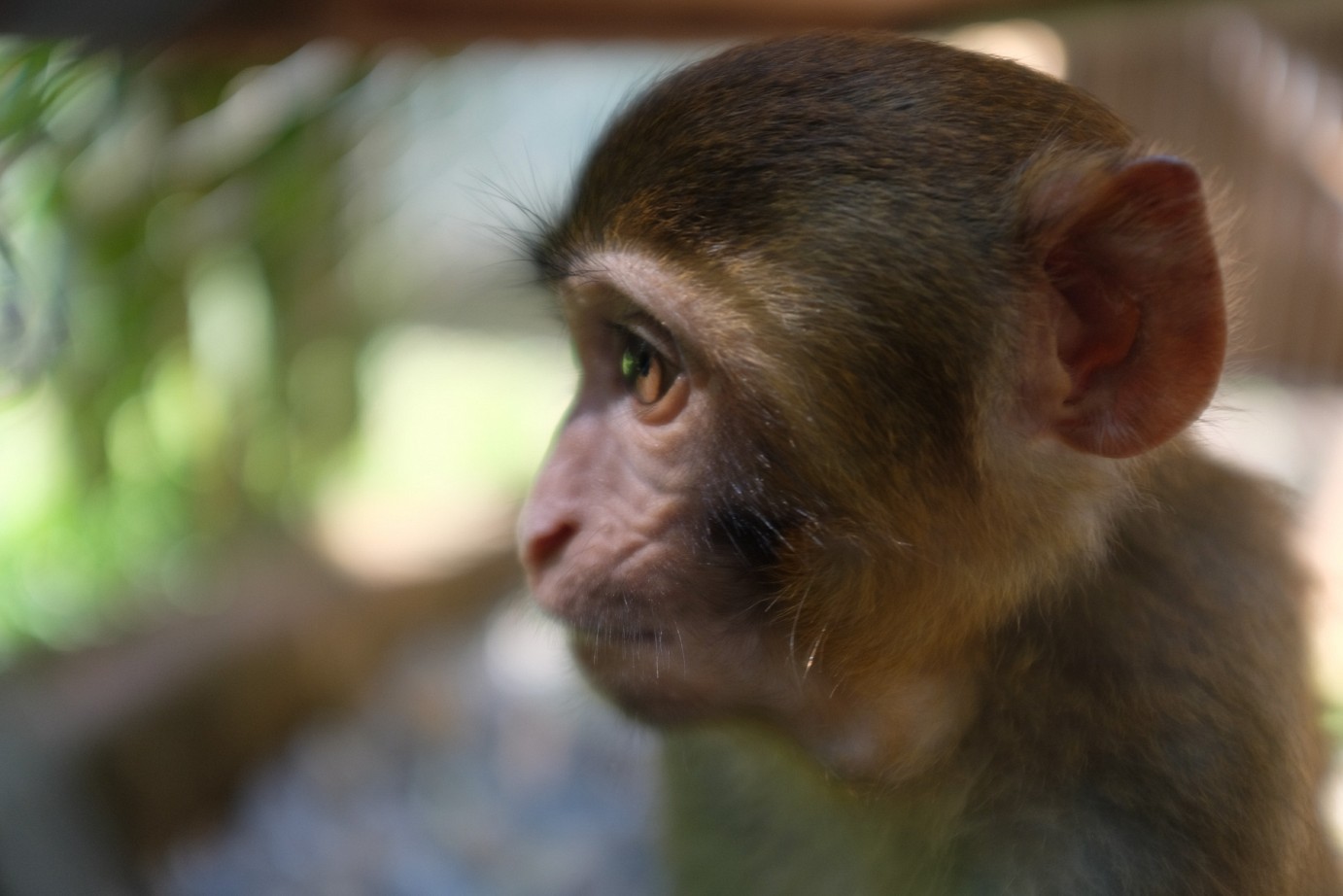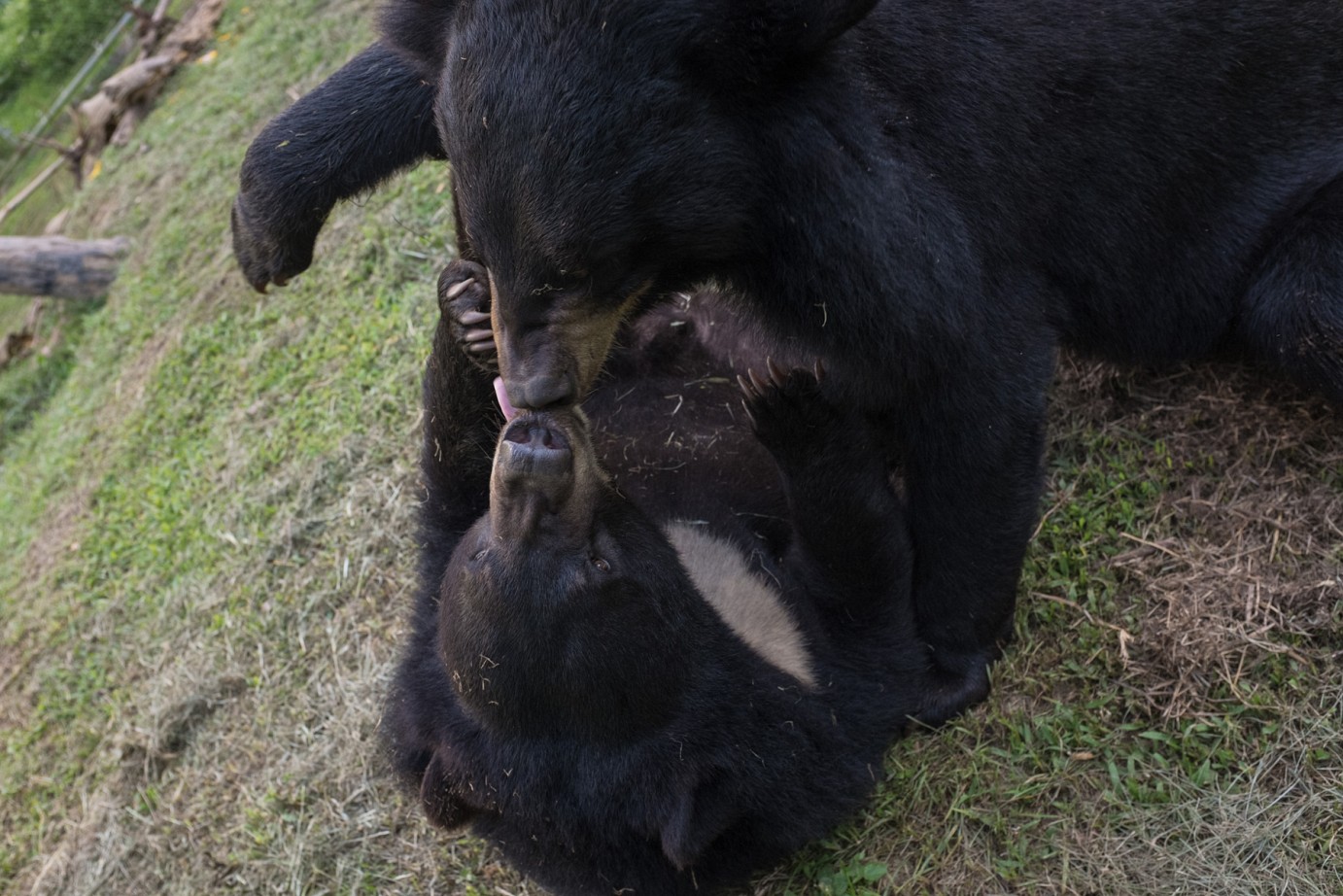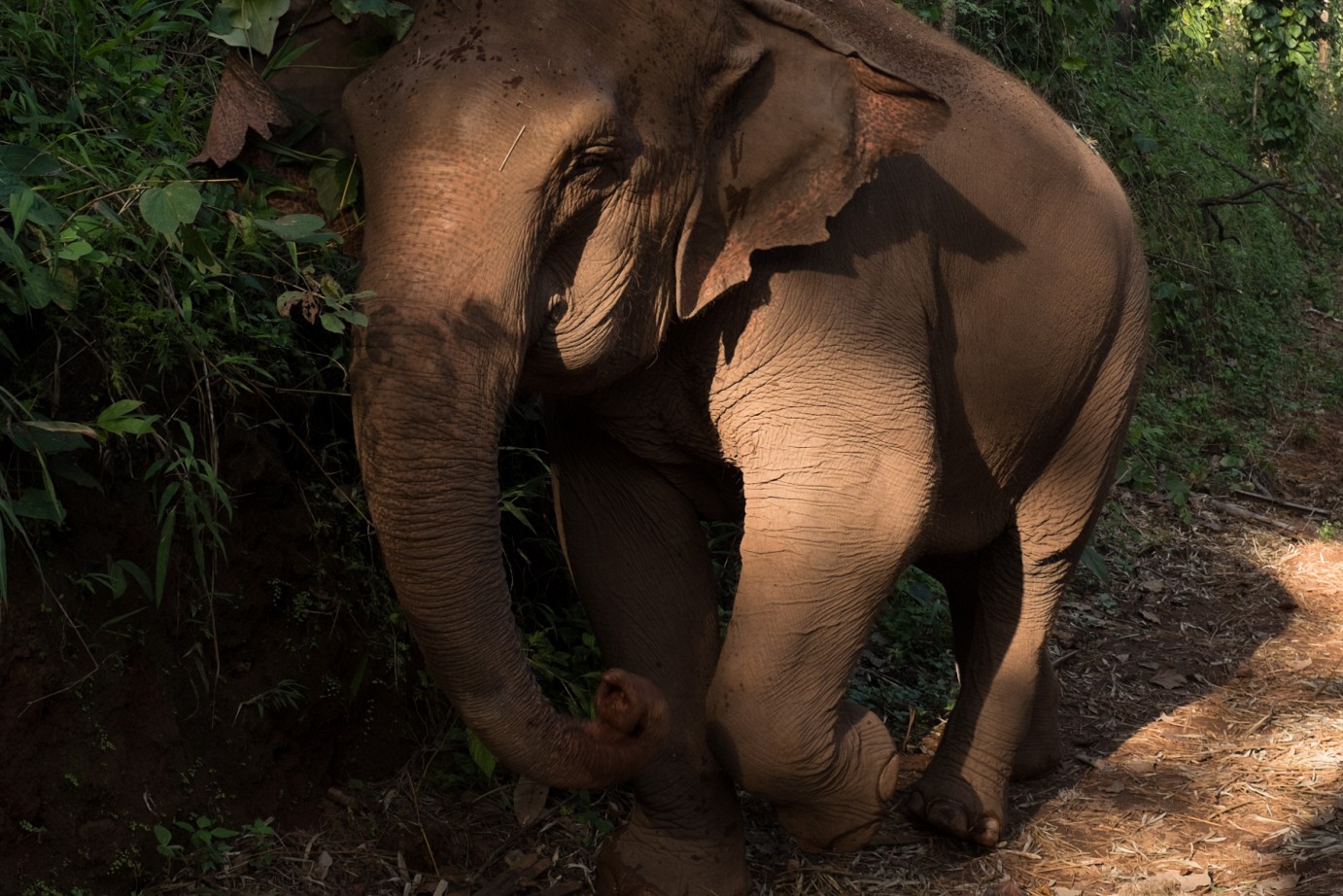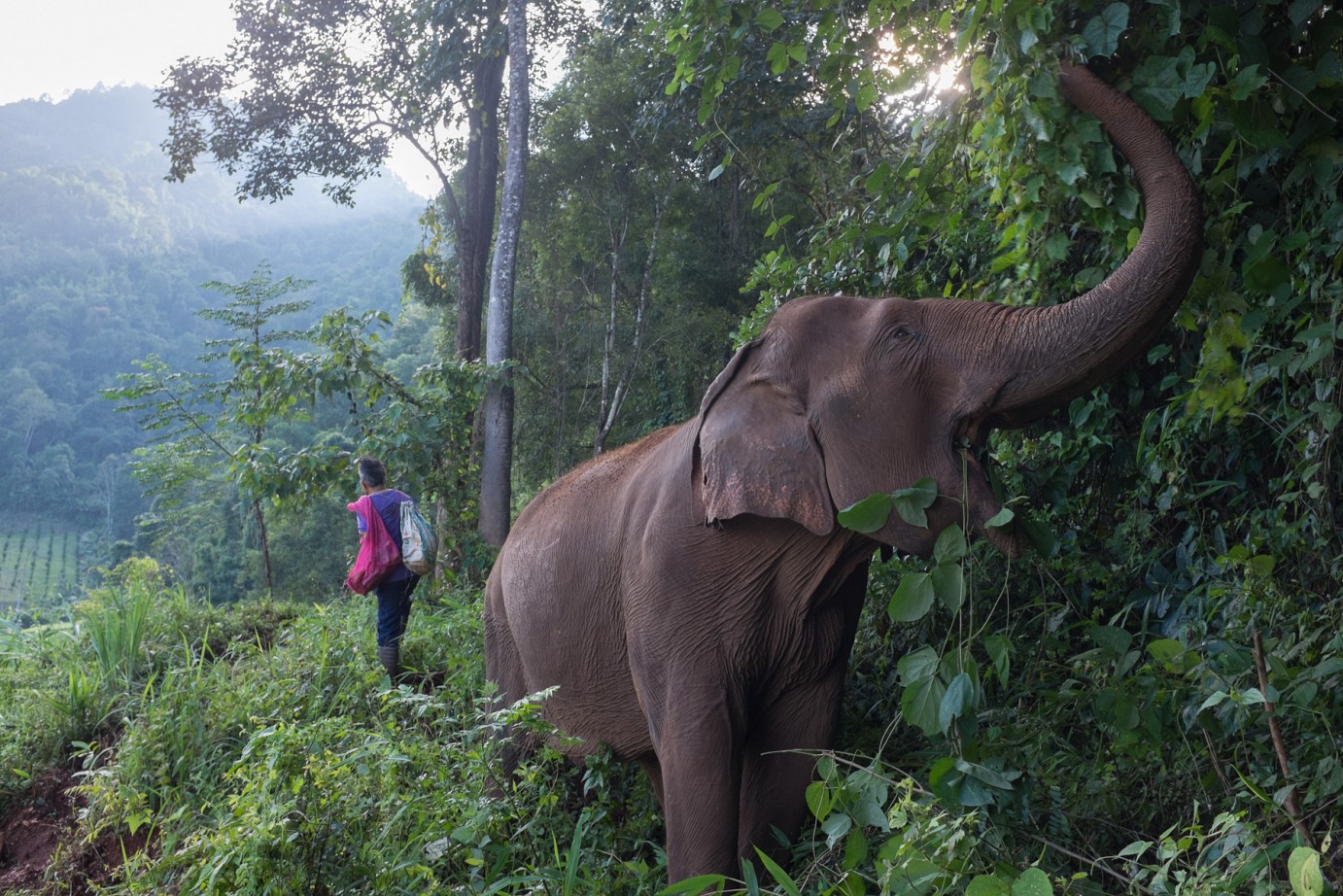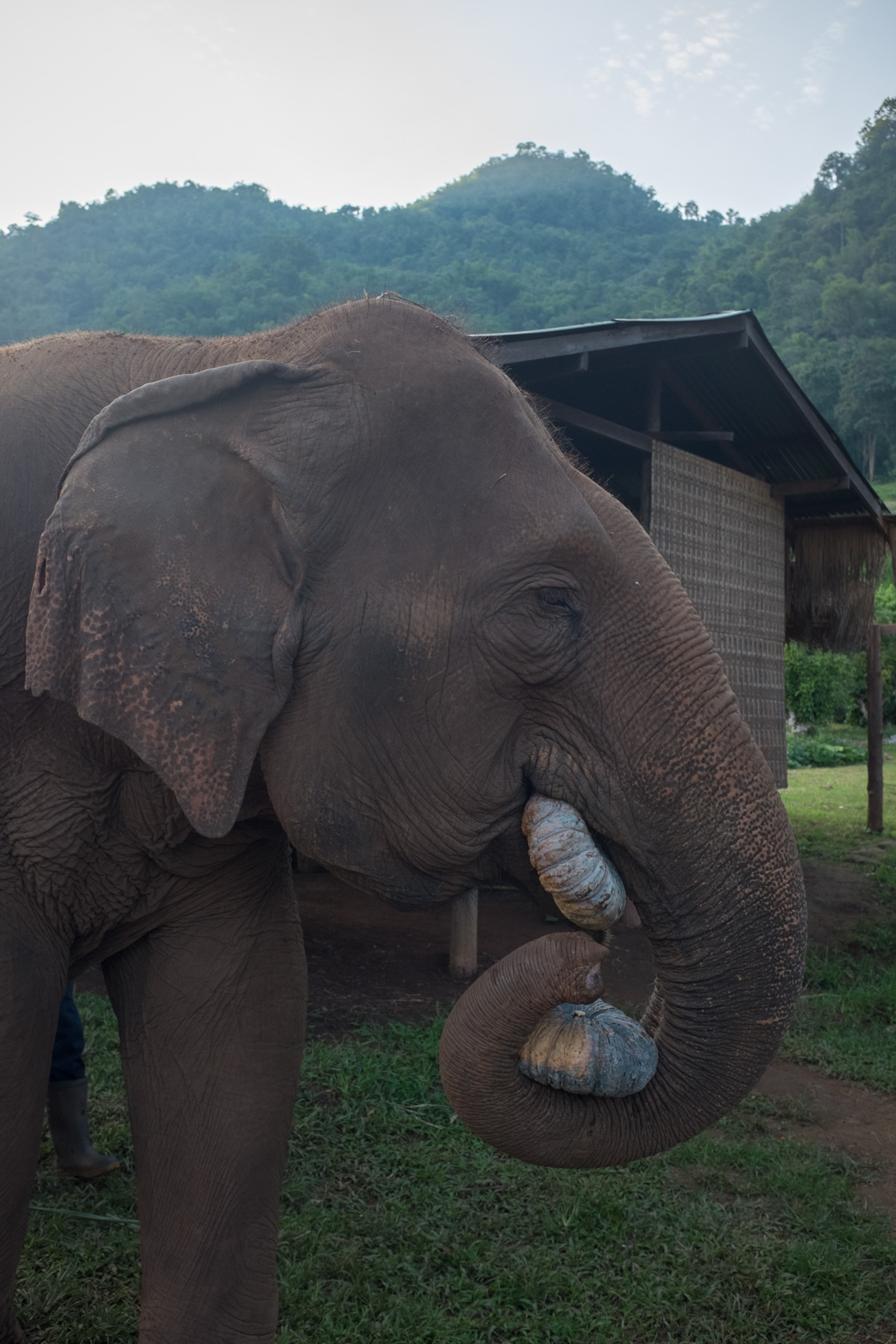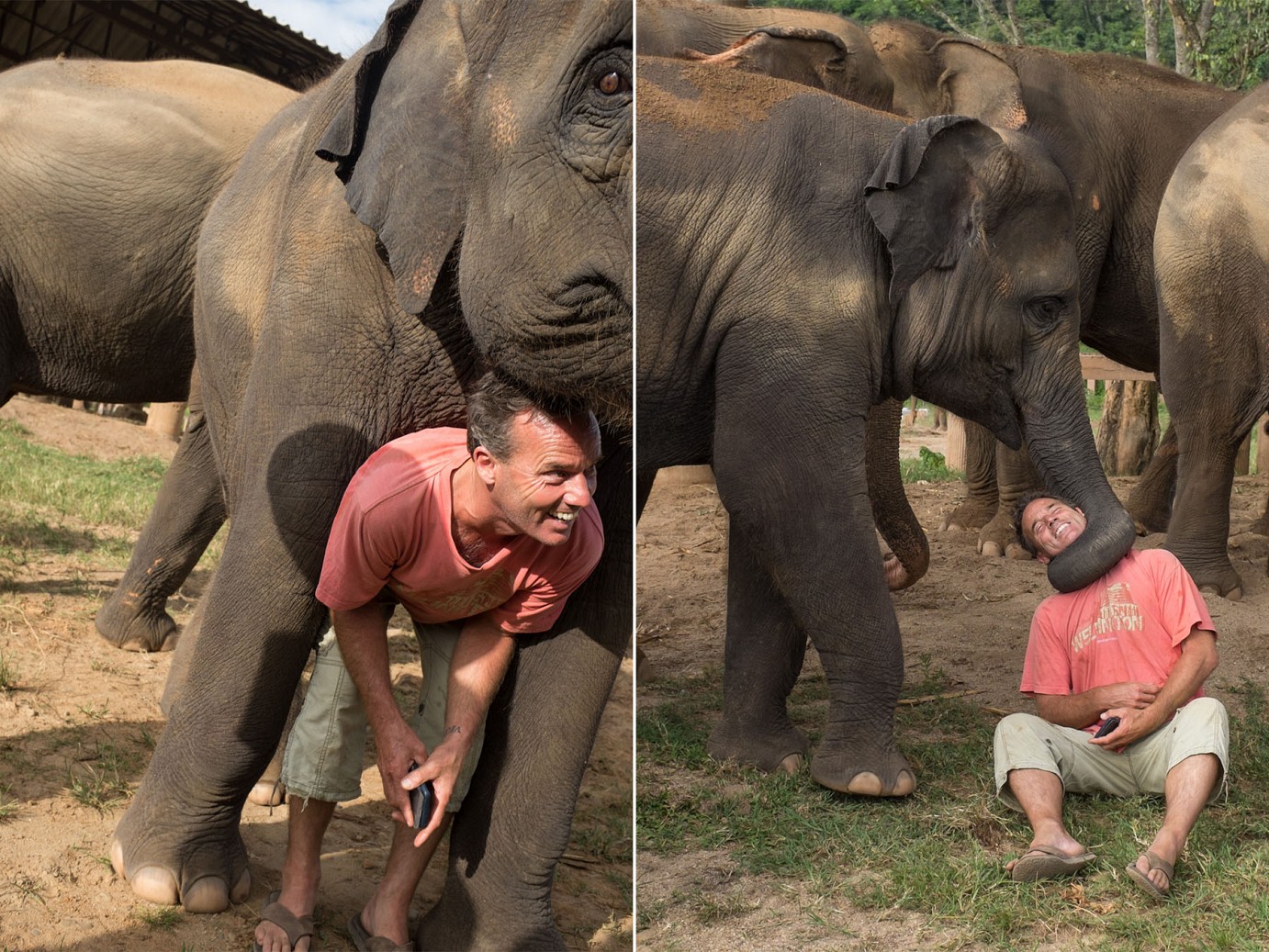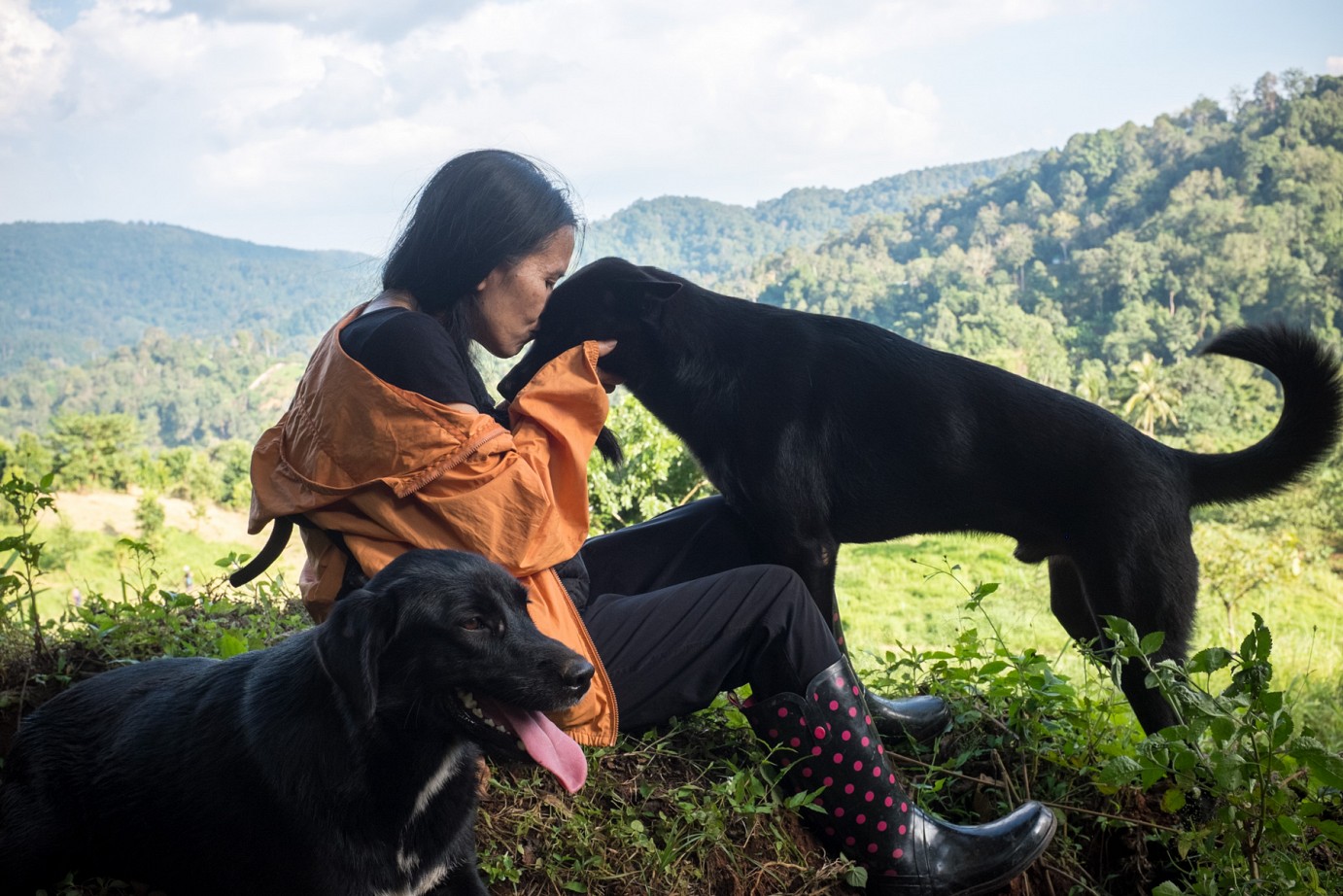At times the world can be a brutal and unforgiving place, especially for the defenseless among us. And at times this brutality has crushed my spirit and left me desperate for escape. In these times, it's hard to know how to engage the world, or how to take care of myself. I've struggled with these questions quite a bit recently, as I wrote about in Eating is the Easy Part, but the most recent leg of my journey—spanning 46 days, 2 countries, and 4 animal sanctuaries—dare I say, has given me more answers than questions for a change.
It all started back when this massive adventure was only in its planning stage, and I heard about my friend Terry's experience volunteering with elephants in Thailand. I love elephants as much as the next guy, but in North America the only way to see them is in a circus or a zoo, and I'm not about that. So I was thrilled to find this unique opportunity to interact with one of the most incredible animals on earth, in an ethical way. (There are lots of elephant rides, and similar attractions in SE Asia, but they all involve painful coercion and horrific abuse.) My first glimpse was at the Cambodia Wildlife Sanctuary, a 25,000 acre reserve in the northern part of the country. And I must say, I was not disappointed.
It was there where I met my first elephant friend, Arun Reah. There is something so mysterious about elephants, like they are dinosaurs brought back to life, yet they are extremely intelligent, sensitive, and social, and in those ways are actually really easy to relate to. I was absolutely mesmerized seeing them up close, as you can see below for instance, how the tough yet soft skin of her neck wrinkles and drapes over her body.
Another thing that makes them so relatable is that elephants have roughly the same lifespan as humans. Arun Reah was forced to work in the logging industry—chained, prodded, and dragging massive timbers through the jungle—for the first 35 years of her life. In the last 10, since being rescued, she's been able to live in freedom at the sanctuary, enjoying the simple things in life. Here she is on a jungle walk. No chains. No spikes. No felled trees to drag. Just sugar cane to keep her happy and well fed. To hear the sigh she lets out, upon the first sweet crunch, is pure bliss.
Elephant Nature Park is also home to over 450 dogs! During my weeks of volunteering there one of my duties was to help socialize some of the shy dogs. One of them, who quickly secured a place in my heart, is sweet little Moon. She was rescued with her brother, Sun, from the illegal dog meat trade in Bangkok. I was honored to do my part to help her prepare for her trip to Colorado, where she and her brother are now even closer to finding a forever home. (Shout outs to the incredible people of Underdogs Animal Rescue and Sunshine Canyon Dog Rescue for making it happen for them!)
The dog shelter is run by a handful of superhero staff, and a rotating group of about 10 volunteers. Lucie and Jack decided to stick around for a few months to help out. Among their duties is giving one of the older dogs, Memphis, his daily fluids and meds. He's very tolerant—the hard part is actually finding him, as he roams free around the entire property. Baby Jackie, on the other hand, needs no meds, she just doesn't want to miss out on any attention.
And on the way back, she broke into the storage shed and stole a couple of pumpkins. They were waiting for her to eat anyway, so she got nothing more than a stern talking to—and got to keep the pumpkins of course.
It started when Lek, at age 11, saw a water buffalo being slaughtered. This was in the 1970s, in rural Thailand. There was nothing hidden from sight, and no pretense of "humane animal husbandry." Witnessing this buffalo, stabbed, slashed, and bled to death before her eyes, she decided then and there never to eat animals again. The very next year, with her reputation for liking animals, she was tasked with caring for 12 pigs. She hand raised them, giving them food, attention, a clean and comfortable home, and love. At school she would be relentlessly teased by the other kids, as the "jungle girl." Testing her toughness, they would step on her bare feet with their shoes. They would sexually harass her—even the teacher's son, and they would get away with it. And she would come home to her 12 pigs, weeping to them as they licked her tears, and rested their heads on her shoulders. She spoke to them of her struggle, and they would listen. At night she would sit with them and read fairytales. They would gather around, and fall asleep at her side, her legs their pillow.
But one day she came home to screams. To her horror she found her pigs being tied by the feet and mouth and loaded onto a truck. She pleaded with the man to leave them be, but he laughed, said they didn't belong to her, and spit at her. While the man was impressed by her ability to instantly put the pigs at ease, even in their terrifying last moments, they were all torn from her life. Her only friends in the world were loaded onto a truck, and driven away to be killed and eaten.
More than 40 years later, she still tells this story with tears in her eyes. At this point I ask her the question that has been weighing on me for months, "how do you deal with hopelessness?" But she responds in resolute defiance, "No, Lucas, we can never lose hope! Not for a moment, we have to stay strong!" We, as she said, can speak, we can type, we can be a voice for the animals who cannot fight for themselves. And so we must, and that is all there is to it.
Darrick had a different take. He went vegan back in the 1980s, after seeing a butcher brutally killing a cow in Toronto. After witnessing this grisly and bloody scene, he said to himself "there's no way I could ever do that. And so there's no way I'm paying someone else to do it for me." And that was that. Over the decades he's had plenty of opportunities to lose hope. But he said it seems that hopelessness is more of a risk for those who don't actually work with animals, for whom the commitment to ending suffering is more abstract.
At this point it all started coming together for me. What empathy gives us—the gift of love and the burden of heartbreak, must both be at the core of our passion. They cannot fight each other. I see them, I watch as their elephant friends come running across the field to greet them. I see their massive foundation—at least half a dozen sanctuaries and growing—and I think well, sure, for them the love and success outweighs the pain and heartbreak. But no, I think it's that we must—out of moral imperative, embrace both the love, wonder, and success, and the heartbreak, despair, and failure. We must embrace all these consequences of empathy, and harness their power to keep fighting. For if we give in to hopelessness, if we quit, step back, avert our eyes and stand idle, then the animals continue to suffer, and our hopelessness grows upon itself. We end up retreating from it all, bitter, guarded, and passive. But I've seen the alternative in them: successful, inspirational, and surrounded by a herd of animals who love them endlessly. Their hearts have certainly broken and healed thousands of times over, but I don't think they'd trade any second of their lives for the world.

